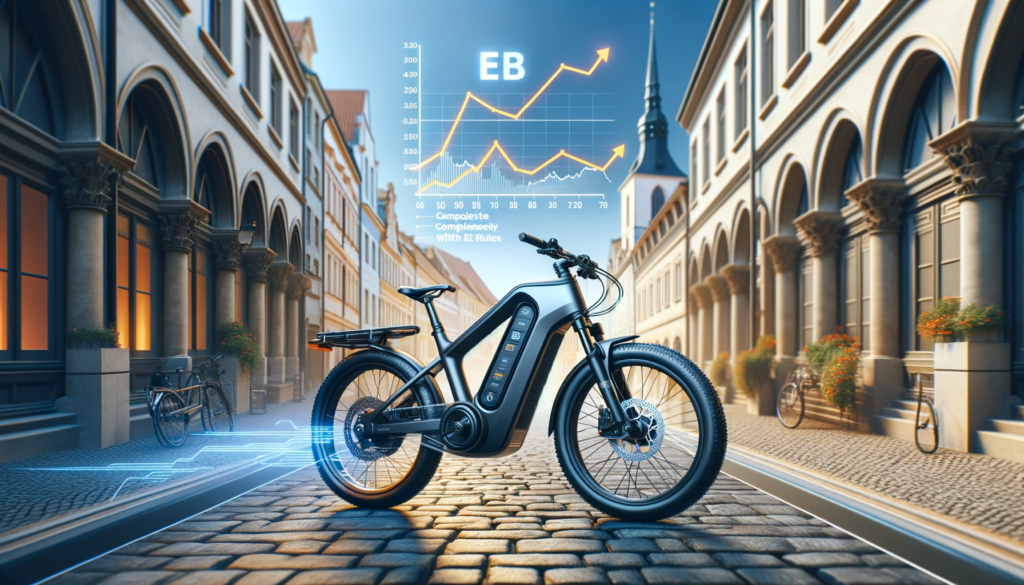Introduction:
Electric bikes, or e-bikes, have become a ubiquitous presence on the streets and trails of the European Union (EU), sparking a surge in sales and a rising demand for sustainable, efficient transportation. This article explores the burgeoning popularity of e-bikes in the EU market and delves into the various facets of compliance, including VAT compliance, green compliance, and recycling compliance, that manufacturers must consider to ensure their products meet the EU’s stringent regulations.

-Bikes: A Trend on the Rise
E-bikes have gained prominence for several compelling reasons, which contribute to their soaring popularity in the EU market:
- Environmental Friendliness: The EU’s unwavering commitment to environmental protection and sustainability has made e-bikes a favored choice. These eco-friendly vehicles align perfectly with the region’s green initiatives.
- Traffic Congestion Solutions: Many European cities grapple with traffic congestion. E-bikes offer an effective solution, allowing commuters to bypass gridlock and reduce their travel time, contributing to a smoother urban transportation experience.
- Health and Fitness: E-bikes promote physical activity by making cycling accessible to individuals of all fitness levels and ages. They inspire active transportation and combat sedentary habits, aligning with the EU’s health and wellness goals.
- Economic Benefits: E-bikes are not just eco-friendly; they’re also cost-effective. They require minimal maintenance and bring savings on fuel and parking, making them an attractive choice for budget-conscious consumers.
- Government Support: Many EU countries provide incentives and subsidies to encourage the adoption of e-bikes. These financial perks have significantly boosted e-bike sales.

Comprehensive Compliance with EU Rules: A Must for Manufacturers
Manufacturers must prioritize comprehensive compliance with EU rules and regulations to guarantee the safety, quality, and environmental sustainability of their products. Here are specific areas of compliance that manufacturers must address:
- Safety Standards: E-bikes must adhere to the EU’s stringent safety standards. Compliance includes requirements for brakes, lighting, and overall design to ensure the safety of riders.
- Classifications: E-bikes are classified into categories based on their power and speed capabilities (pedelecs, e-bikes, and speed pedelecs). Manufacturers must label and market their e-bikes accordingly, ensuring consumers are well-informed about the product they are purchasing.
- CE Marking: To demonstrate compliance with EU safety and environmental standards, e-bikes should carry the CE marking. Manufacturers must conduct testing and obtain certification to affix this mark.
- Battery Regulations: The EU has specific regulations regarding lithium-ion batteries used in e-bikes. Manufacturers must ensure these batteries meet safety and environmental requirements to protect consumers and the environment.
- VAT Compliance: Manufacturers must navigate VAT (Value Added Tax) regulations, ensuring that they collect and remit the appropriate taxes on their e-bike sales in EU member states. This necessitates proper accounting and tax compliance practices.
- Green Compliance: E-bike manufacturers should source materials and components with minimal environmental impact, such as recyclable materials and eco-friendly manufacturing processes. This approach aligns with the EU’s commitment to green and sustainable practices.
- Recycling Compliance: Manufacturers need to be aware of the EU’s Waste Electrical and Electronic Equipment (WEEE) Directive, which governs the disposal and recycling of electrical and electronic equipment, including e-bike batteries. Proper recycling and waste management practices are essential.
Conclusion
E-bikes are experiencing a red-hot surge in sales in the EU market, driven by their eco-friendliness, health benefits, and cost-effectiveness. To ensure long-term success in this burgeoning market, manufacturers must prioritize comprehensive compliance with EU rules and regulations. By meeting safety standards, adhering to classifications, obtaining the CE marking, and following battery regulations, manufacturers can deliver top-quality e-bikes that meet the expectations of European consumers while contributing to a greener and healthier future. Additionally, VAT, green, and recycling compliance are crucial aspects of ensuring holistic adherence to EU regulations, allowing manufacturers to participate in the e-bike revolution while respecting the environment and tax requirements.
